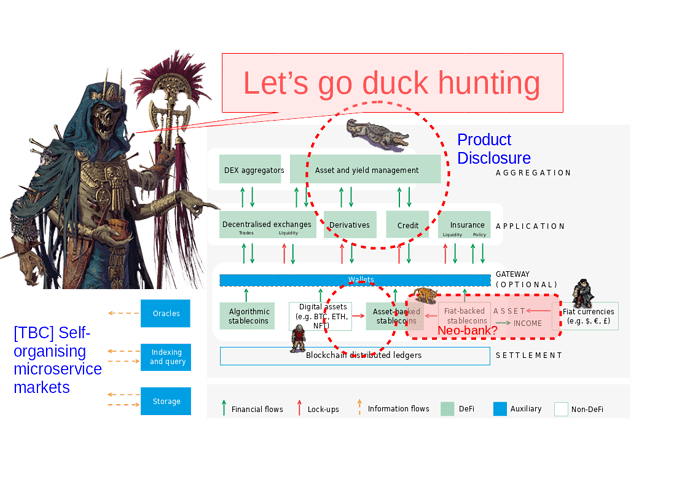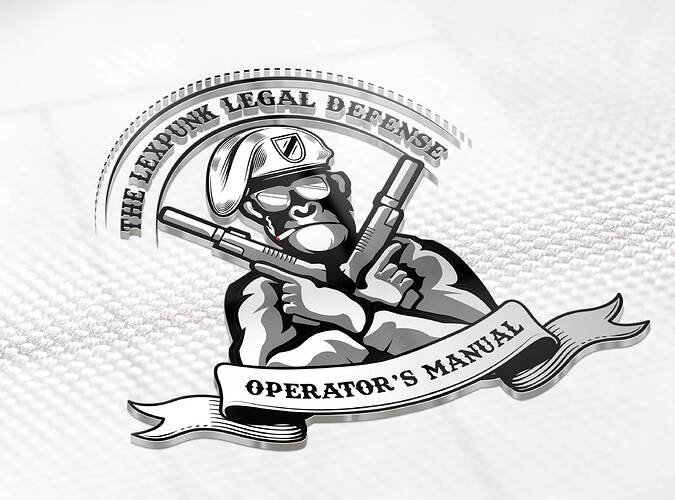Thanks @SH_Brennan for the considered reply.
The OP was a request for money. Since there is no specific project/task being funded and it’s not clear who the stakeholders are, $250K seems generous taking into account that this proposal is being funded by multiple platforms. I know that won’t fund a legal defence for a securities lawsuit but I’m not sure this type of fund is suitable for litigation beyond a handful of amicus briefs anyway.
If this is a pitch to the Curve community, it needs to sell the value prop. Which then begs the question: why is Curve funding a DAO where the ROI is negligible? Curve isn’t facing an avalanche of securities law issues. Its exposure is about the same as every other DeFi platform. If Curve was ever singled out by the SEC, this legal fund won’t scratch the surface of the eventual legal defence budget.
So let’s go back to first princples so I can think through the implications.
My clients come first. They decide what’s important. In this case, the community and investors are the client. It’s their money. They need to drive the initiative and direct the focus with our help. Hence my call for a community driven and funded DeFi Industry Group that covers multiple platforms and would allow for proper membership and cross-jurisdictional support. You want to build it on a DAO? Sure, we can do that. But at least we’ll have the right stakeholders engaged to manage the objectives and outcomes. And it’s a very safe bet that the first thing on their mind won’t be funding amicus briefs by securities lawyers in the US.
Maybe that’s one of the missing pieces here - did this proposal come out of a conversation with clients to understand what their main concerns are? Going through the campaigns more closely, I don’t see alignment with the needs of any of my DeFi clients:
- a landmark position paper advocating for positive analysis under securities law, commodities law or tax law of Curve-relevant DeFi primitives such as AMMs and staking-for-fees-and-governance. - US Securities law
- a legal defense of DeFi developers against regulatory litigation; - US Securities law
- proposed ‘safe harbor’ legislation legalizing key aspects of DeFi; - US Securities law
- if/when the SEC files a case premised on a novel, expansive view of securities laws that could adversely affect DeFi builders (for example, that all project participants are collectively responsible as an ‘unincorporated association ’); the LeXpunK_DAO would file an amicus curiae brief in the litigation - US Securities law
Maybe this stuff is exciting for securities and litigation specialists but we need to open this up to a broader set of concerns and deeper strategic goals. I was really surprised to see not a single strategy covering IP - even though my recent foray into the Rarible licence uncovered a swathe of issues for NFTs. Not one word on industry protections for devs, many of whom are deeply exposed on a personal liability level. No advisory group. No global response to deal with the FATF on the VASP requirements or a response to the EU Commission on MiCA.
The proposal seems developed by securities lawyers who will fund costly campaigns by other securities lawyers.
We are not going to convince Congress or the SEC to upend 75 years of precedent overnight. And while pushing for change is a fantastic goal, the legal DAO won’t be the one to do it because it not driven by the industry itself. We all watched Chairman Gensler’s speech and can see the writing on the wall for a lot of projects who don’t have their house in order. Chairman Gensler thinks the regulatory clarity is there. I tend to agree. However there was a number of other thinly veiled messages in the Aspen speech that went unremarked and point to a way forward. These messages are based on the sound public policy grounds for the Securities Act and the SEC’s recent stance towards ICOs (with governance tokens coming next).
If we’re providing sound advice to our clients, it needs to consider the public policy behind the laws, anticipating what that path forward might look like and providing options to be explored. Gensler offered an olive branch when he said: “Come and speak to us at the SEC about your project”. I know this doesn’t look like one of your campaigns but it will need to occur soon - it’s about agreeing, as an industry, how best to approach this in a collective fashion and sit down with the SEC as a collective voice. “Unity”, as the old union saying goes, “is strength.”
The industry group needs to be the DeFi equivalent of FATF, SWIFT or ISO. That would allow for economies of scale, more reasonable and predictable membership fees, clear objectives and goals and sufficient clout to make regulators and politicicans take notice. It’s significantly more ambitious than what is being proposed by the OP but will get the right legal outcome for the industry. We should be aiming for self-regulation just like other giants of the financial services sector. We need to incentivise good operators and show the public we can deal with rogues.
We’re well past the stage of cottage industry and hobbyists and need to fund organisations that reflect that reach.
I’m a technology lawyer and have to deal with a wider range of problems. After my clients receive their obligatory “we don’t know, maybe, probably” legal advice on US Securities law (which is promptly shelved), the next thing they want to know is how to set up the business correctly and get operational.
Looking past the not-terribly-exciting securities law issues, my clients also want to be forewarned on more pressing regulatory and practical legal issues that affect their operations - including things like obtaining insurance, the likely impact of VASP requirements, raising capital, creating decentralised markets for commodities and property, NFT licensing, money transfer business laws, the travel rule, KYC, AML, privacy, contracts of various sorts etc etc. They’re targeting 3-4 large markets and need to understand the pitfalls in each jurisdiction. They want to get out in front of this stuff and they’re not waiting for a green light from the SEC for the simple reason that it will never come and you can’t run a business looking over your shoulder. Anyone who’s had experience in-house would know that.
None of the above topics are listed campaigns. It’s as if we’re re-hashing 2017 all over again. Believe it or not, a lot of us have moved on and if the SEC comes knocking, we’ll leave plenty of soft toys for them to chew on while we get on with business - just like every large enterprise does everywhere in the world. Where’s the strategy around that?
Want to make real change? Let’s start by getting DeFi employing more people - lots of them. Let’s make this industry exciting to work in. Let’s find ways to engage folks who would never touch crypto. There’s a dire need for support and we know people across the board are out of work. This is the future of finance - for people of all walks of life, around the world.
DeFi needs more than just PhD grads and securities lawyers. It needs accountants and sales staff. HR and marketing. We need payroll and purchasing. There’s a reason tobacco and big pharma and big oil and defence companies and banks survive and it’s not just money. It’s their people. These industries employ thousands of workers across the world. That is how they are normalised when there are plenty of reasons for them to be marginalised.
Lawyers should aspire to becoming trusted advisors to their clients. That often means using smart, retail politics and prudent business practice. A bit more of that would go a long way here and save a lot of time and money.
“Seeing such a huge lump-sum donation to a small group of lawyers out of a DAO, and how quickly it was approved, opened our eyes to the urgency of ensuring that diverse DAOs and builder teams have a voice in cryptolaw debates,” they said.
I bet it opened some eyes. But I don’t know if the solution to a small group of lawyers with a big bag of money is a big group of lawyers with a smaller bag of money. 



